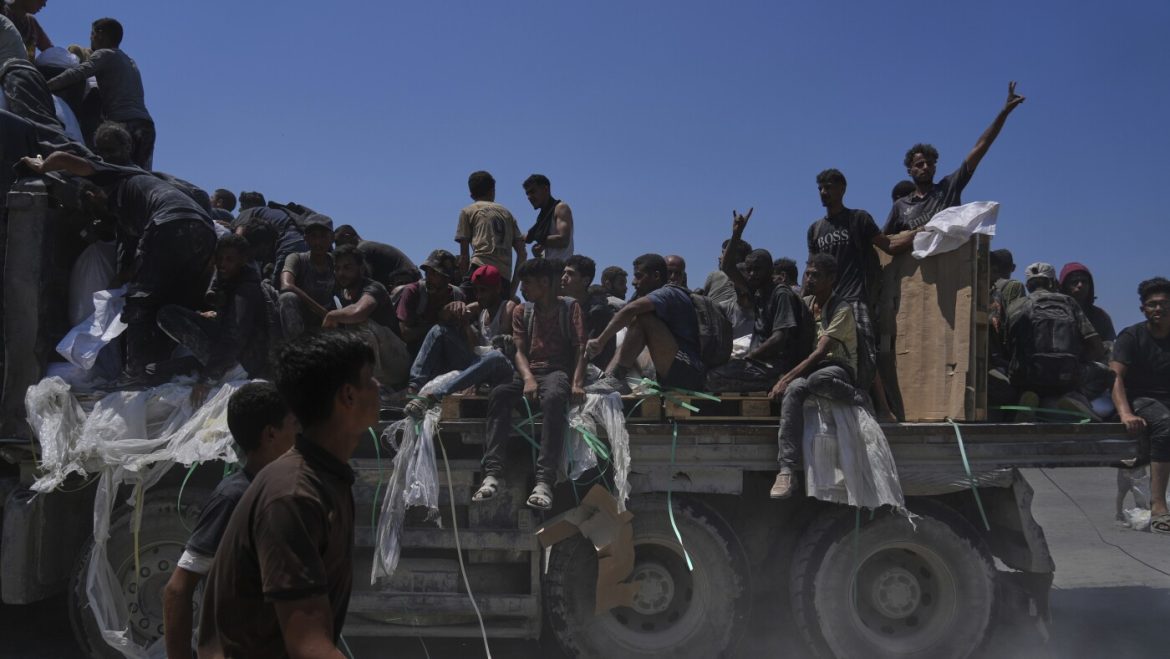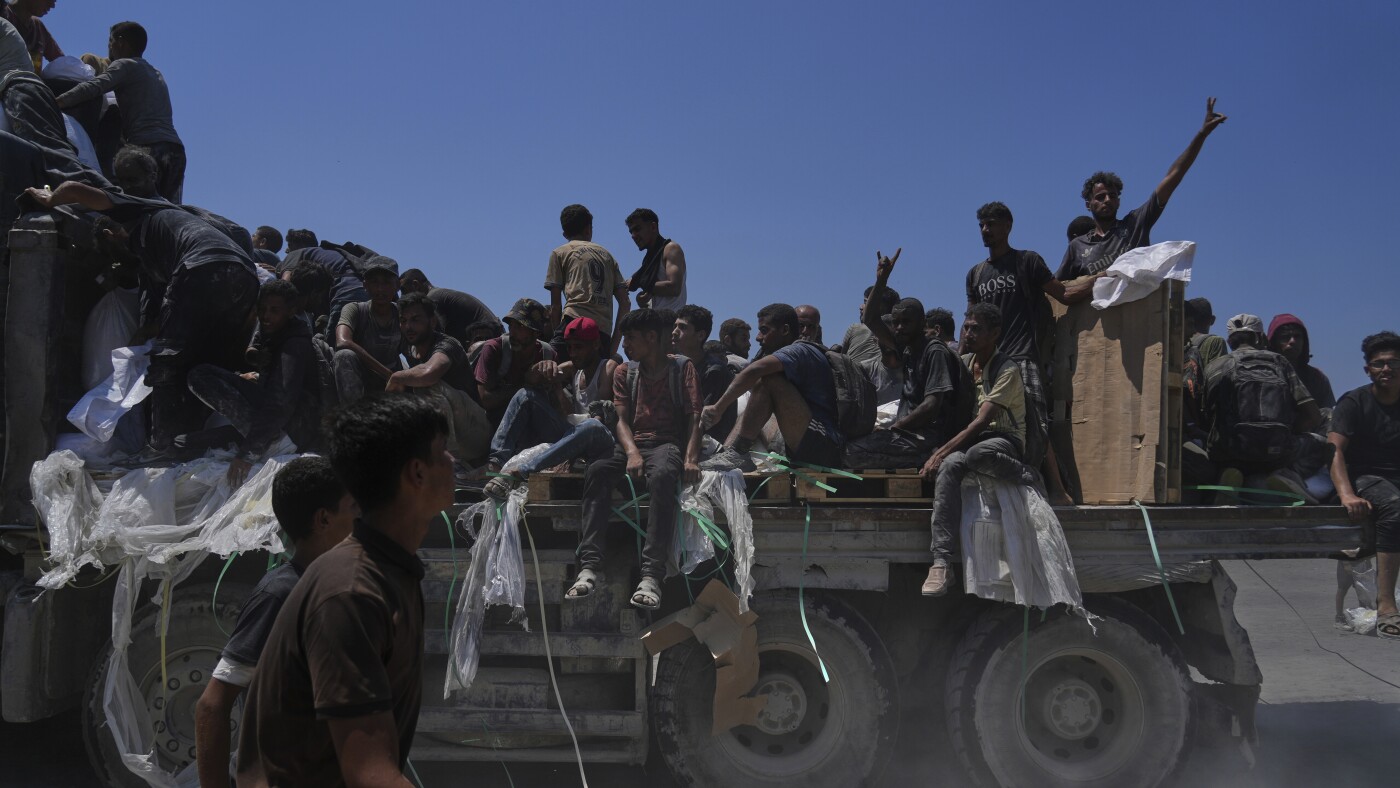The Weight of Words: Analyzing the Accusation of Genocide Against Israel in Gaza
Introduction: The Gravity of the Accusation
The accusation of genocide is not merely a political statement; it is a legal and moral indictment that carries the weight of history’s darkest chapters. When respected Israeli human rights organizations like B’Tselem and Physicians for Human Rights-Israel (PHRI) level this charge against their own government, it demands serious examination. This is not a matter of political rhetoric but a profound allegation that strikes at the heart of international law and the principles of human rights.
The Accusers: Voices from Within
B’Tselem and PHRI are not fringe activists; they are established institutions with decades of credibility. B’Tselem, founded in 1989, has meticulously documented human rights violations in the occupied Palestinian territories, earning respect both domestically and internationally. PHRI, similarly, has been a steadfast advocate for healthcare rights, particularly in Gaza and the West Bank. Their decision to use the term “genocide” is not a casual one—it reflects a deeply considered assessment of the situation on the ground.
The Context: Gaza Under Siege
The accusations arise from the ongoing conflict in Gaza, where the scale of destruction and humanitarian crisis is undeniable. The recent military operations have left a trail of devastation, with civilian casualties, destroyed infrastructure, and a collapsing healthcare system. The blockade of Gaza, in place for years, has exacerbated the suffering, creating a population dependent on dwindling aid and basic necessities.
Casualties: The Human Cost
The number of Palestinian deaths, particularly women and children, is a central concern. While Israel argues that its military operations target Hamas militants and take precautions to avoid civilian casualties, critics contend that the sheer scale of destruction suggests a disregard for Palestinian lives. The disproportionate impact on civilians raises questions about the intent behind these operations.
Destruction of Infrastructure: A Deliberate Strategy?
The targeting of homes, schools, hospitals, and other civilian infrastructure is particularly alarming. The destruction of healthcare facilities, in particular, undermines the population’s ability to survive. If these actions are not accidental but part of a deliberate strategy, they could constitute evidence of genocidal intent.
Humanitarian Crisis: A Population Under Siege
The blockade of Gaza has created a dire humanitarian situation, with restrictions on food, medicine, and fuel leading to widespread poverty, malnutrition, and disease. The ongoing conflict has only worsened this crisis, leaving many Palestinians without access to basic necessities. The deliberate creation of such conditions could be interpreted as an attempt to systematically weaken or destroy the population.
Defining Genocide: The Legal Threshold
The 1948 Genocide Convention defines genocide as acts committed with the intent to destroy, in whole or in part, a national, ethnical, racial, or religious group. The key element here is intent. Proving that a state is committing genocide requires demonstrating that its actions are specifically aimed at eliminating a protected group. This is a high legal bar, and the debate surrounding Israel’s actions in Gaza hinges on whether this threshold has been met.
Arguments Supporting the Accusation
Those who argue that Israel is committing genocide point to several factors that, when taken together, suggest genocidal intent:
Disproportionate Force: A Pattern of Destruction
The scale of destruction and the number of civilian casualties are far in excess of what would be necessary to achieve legitimate military objectives. This suggests a deliberate targeting of the Palestinian population rather than a proportional response to security threats.
Dehumanizing Rhetoric: The Language of Genocide
Instances of dehumanizing language used by Israeli officials and in the media portray Palestinians as less than human or as an existential threat. Such rhetoric can create an environment in which genocide becomes more likely, as it normalizes the idea of eliminating the “other.”
Restrictions on Humanitarian Aid: A Deliberate Strategy?
The restrictions on the entry of humanitarian aid into Gaza, despite the clear need for assistance, could be seen as evidence of an intent to create conditions that will lead to the destruction of the Palestinian population. If aid is deliberately withheld to exacerbate suffering, this could constitute a form of genocide.
Targeting of Healthcare: A Deliberate Weakening of the Population
The targeting of hospitals and medical personnel, despite being protected under international law, could be interpreted as a deliberate attempt to weaken the Palestinian population’s ability to survive. If healthcare is systematically destroyed, it undermines the population’s resilience and ability to recover.
Counterarguments and Alternative Interpretations
Those who reject the accusation of genocide offer alternative interpretations of the situation:
Self-Defense: The Right to Protect Citizens
Israel maintains that its actions in Gaza are acts of self-defense, aimed at protecting its citizens from attacks. They argue that Hamas deliberately uses civilians as human shields, and that the high number of casualties is a result of this tactic rather than deliberate targeting.
Unintentional Consequences: The Fog of War
While acknowledging the suffering of the Palestinian population, critics argue that the destruction and casualties are unintentional consequences of legitimate military operations. They contend that Israel does not have the intent to eliminate the Palestinian people, but rather is acting to achieve specific security objectives.
Lack of Genocidal Intent: A Misinterpretation of Actions
Those who reject the genocide accusation emphasize that Israel has no desire to eliminate the Palestinian people. They argue that the actions in Gaza are not driven by genocidal intent but by a complex security situation in which civilian casualties are an unfortunate but unintended consequence.
Complex Conflict Dynamics: The Role of Hamas
The complex dynamics of the conflict, including the role of Hamas and other militant groups, are seen as contributing factors to the suffering of the Palestinian population. Some argue that Hamas’s use of civilian infrastructure for military purposes complicates the situation and makes it difficult to avoid civilian casualties.
The Implications of the Accusation
The accusation of genocide, regardless of its ultimate validity, has significant implications:
International Scrutiny: A Global Spotlight
The accusation puts Israel under intense international scrutiny, potentially leading to investigations by international bodies such as the International Criminal Court (ICC). This could result in legal consequences, including sanctions and other forms of international pressure.
Legal Ramifications: The Weight of the Law
If Israel is found to have committed genocide, it could face severe legal consequences, including sanctions and other forms of international pressure. The legal ramifications of such a finding would be profound, both for Israel and for the broader international community.
Political Impact: A Shift in International Relations
The accusation could further isolate Israel internationally and damage its relations with key allies. It could also lead to a shift in international policy, with countries and organizations taking a harder line against Israel’s actions in Gaza.
Moral Implications: A Question of Conscience
The accusation raises profound moral questions about the conduct of the conflict and the treatment of the Palestinian population. It challenges the international community to confront the ethical dimensions of the conflict and to consider the moral responsibility of all parties involved.
Domestic Divisions: A Polarized Society
Within Israel, the accusation has sparked intense debate and further polarized public opinion. It has deepened divisions between those who support the government’s actions and those who see them as a violation of human rights and international law.
Conclusion: A Call for Accountability and Justice
The accusations of genocide against Israel are a serious matter that warrants careful consideration. While proving genocidal intent is a high legal bar, the evidence presented by B’Tselem, PHRI, and others raises serious questions about the conduct of the conflict in Gaza. Regardless of whether the threshold of genocide has been met, it is clear that the suffering of the Palestinian population is immense and that all parties to the conflict must be held accountable for their actions.
The situation demands a renewed commitment to seeking a just and lasting resolution to the Israeli-Palestinian conflict, one that respects the rights and dignity of all individuals and ensures that such accusations never arise again. The path forward requires a commitment to international law, accountability for human rights violations, and a genuine effort to address the underlying causes of the conflict. Only then can we hope to create a future where both Israelis and Palestinians can live in peace and security.


